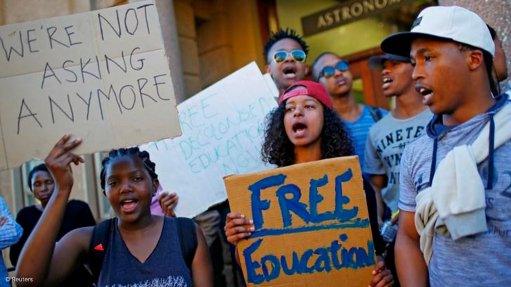
Photo by: Reuters
With South Africa facing a slow growth environment, further taxation demands cannot be placed on the corporate sector to fund universities in aid of free education, Chamber of Mines CEO Roger Baxter said on Friday.
Baxter was responding to a letter received from higher education and technical vocational education and training student organisation South African Union of Students (SAUS) earlier this week. He noted that these taxes would impede economic growth, as well as much-needed investment in the mining industry.
“To try compel the mining sector to pay more taxes will result in the closure of mines and further job losses, with potentially harmful consequences for the entire economy and society,” he said, adding that the chamber believed that tertiary education should be funded properly by government, with contributions from the corporate sector and sliding-scale contributions from students.
In 2015, the local mining industry continued to contribute to skills development, paying a total of R1-billion to the skills levy and a further 5% of payroll on skills development, as required by the Mining Charter.
Last year, the chamber and its members invested R5-billion in skills development and education projects, including financial support for more than 6 000 students at tertiary institutions. Further, over the past five years, chamber members have provided full bursaries to about 12 500 students, enabling them to study at various tertiary institutions.
This is in addition to scholarships for the children of employees, who receive support from primary school to tertiary levels.
Meanwhile, the CoM said it was willing to play a role in engaging with universities, student representative councils (SRCs), government, organised business, organised labour and other civil society groups to seek a sustainable model for the funding of tertiary education. It added, however, that it could not support protest methods involving the damage to university and private property.
“We do not support methods that use threats of, and actual, violence to force university authorities to shut universities. [Nor do we support] the intimidation of students who hold contrary views. The consequences of these tactics will harm the interests of the entire university community,” noted Baxter.
CoM executives have invited leaders of the University of the Witwatersrand SRC to meet with them for further discussion of the memorandum.